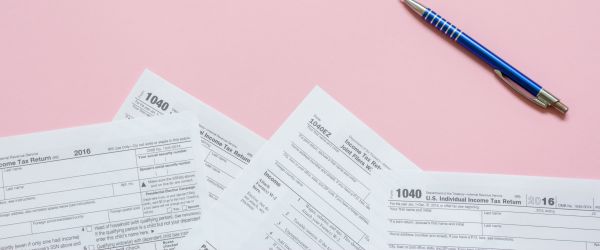Common Tax Questions from Healthcare Travelers

How Do Travel Nurses and Allied Health Clinicians File Taxes?
Filing taxes as a healthcare traveler can be confusing, as you likely worked in different states and need to pay taxes in multiple jurisdictions. To avoid any legal issues and ensure you're paying the correct taxes, it's essential to understand the tax laws and requirements for each state you work in.
Review the following information from TravelTax's Joseph Smith for answers to common questions regarding taxes as a travel nurse or allied health clinician. Whether you're a seasoned travel healthcare clinician or just starting, we're here to help you stay informed and make the most of your travels while taking care of your tax obligations.
Do I Have to Pay Taxes in Multiple States?
Excerpt from: TravelTax – Taxes in Multiple States - Episode 2
There is a lot of confusion surrounding what states you are supposed to have withholding in.
When you work in other states, your home state is going to tax everything you earn, anywhere. It does not matter that you did not work there. You are a legal resident there and therefore are obligated to pay that state's tax on your global income.
When you go work in another state, they are going to tax it too, because you are physically earning that income on their soil. The tax that you are obligated to pay your worked-in state when you file your return is allowed as a credit against your home state return, up to the amount that the home state would regularly charge on that same income.
When you are in a situation where your home state tax is higher than your work state tax, you have an additional amount to pay. If you don’t have enough withholding for the home state or estimated payments when you file your tax returns, it will show an amount due.
A lot of people make the mistake of thinking, "I’m going to a non-resident state and because I do not live there, I shouldn’t pay taxes there." That is not the case. The worst thing you can do is try to file exempt in that other state thinking somehow that their taxes are going to go away and that’s not the way it works.
The home state is going to have the final say. You need to file in every state that you work in before filing in the home state so you can determine what type of credit you have.
There are two situations in which this same formula does not apply:
1. Reciprocity States
Example: Ohio has an agreement with every state it borders. If you are in a reciprocity situation, and you are working in that state, that state is not going to tax your income, it defaults to your home state.
2. Reverse Credit States: Resident of Virginia, Indiana, California, Arizona, or Oregon
- If you live in one of these states and work in the other, it’s the work state that’s going to give you credit for the home state charged, not the normal method which is that the home state gives you credit.
- There is one exception inside this five-state grouping: Indiana & California. If you are an Indiana resident working in California or vice versa, you go back to the normal formula.
How Can I Avoid an Underpayment or Late Payment Penalty?
Excerpt from: TravelTax
If your home state is one of those that have a tax rate higher than your work state, you are often left to make up the difference, either by making estimated payments during the year or when you file your tax return after the year ends. If you wait to pay the difference when you file your return, you could potentially be subject to underpayment interest or even a late payment penalty.
One of the easiest ways to solve this is for the employer to report and withhold the earnings, not only for the work state but also for the individual’s home state. This allows the employer to withhold taxes for both the home and work states to help alleviate this difference. Some states like Michigan already mandate this, and almost all of the other states do not have a problem with this arrangement. However, others like Illinois and Alabama are not set up to handle this kind of reporting. Illinois, especially, needs legislative approval to allow this, and Alabama has a rule that frowns upon this practice. This doesn’t mean that your tax return cannot be filed in the states when there is reporting for both the home and the work state that overlaps on the W-2.
What Should I Do if I am Being Taxed Too Much?
Source: TravelTax – Help! I’m Being Taxed TOO MUCH in my Paycheck!
Each check will have a specific amount of withholdings taken out of it.
Withholdings are an amount taken out of your checks, sent to the IRS and the states, in anticipation of the amount of taxes you are going to owe. The problem is, it is calculated as if you are going to have these types of earnings, such as overtime or crisis shift pay, all year.
Two solutions include…
- File your return at the end of the year, and you will get the excess back
- Adjust your withholdings downward
FlexCare is not acting as your tax professional. Because FlexCare is not a tax expert and does not know the circumstances of each traveling clinician, you should not rely on the information contained in this blog post. FlexCare strongly encourages you to seek outside guidance from a tax professional regarding all tax questions. FlexCare does not have any financial relationship with any of the resources linked.